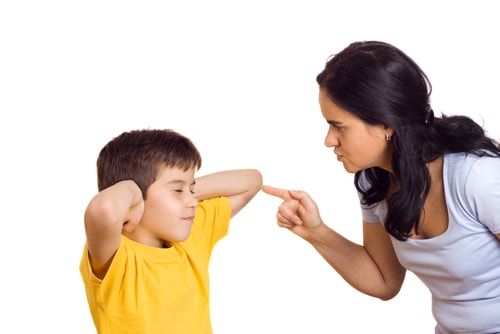The secret to saying “no” to your child without getting angry
Saying “no” to your child can often be tricky when it comes to getting your child to understand the importance of the word. Here are some tips to help you say “no” without getting angry:
|
Children are not old enough to understand the full meaning of every word, but they will recognize the seriousness and solemnity in their parents' expressions. Photo:The Asian Parent |
- Children are constantly testing you to find their own limits and will try to push them. You must be consistent in enforcing rules and regulations, but don't forget to show your love. You also need to identify the consequences of your child's rebellious behavior. When you are consistent in your approach, your child will understand how to behave and what is acceptable and what is not.
- One important thing you need to teach your child from an early age is to accept the concept of "no". It is part of positive discipline that you need to remember so that your child understands his or her limits.
- When teaching your children, you must always be in the position of a parent and do not forget that your goal is to ensure the safety, comfort and best interests of your children. Children love to play with electronic devices and this may seem interesting at first but later, you will realize that these devices are harmful to them.
You need to take this situation seriously. Children are not old enough to understand the full meaning of every word, but they will recognize the seriousness and seriousness in the way you express them and stop playing with those technological devices.
|
Mothers just need to use a deep, firm and serious tone when saying "no" to be effective enough with children. Photo:The Asian Parent |
- Saying "no" to your child doesn't mean you have to raise your voice or yell at them. Doing so will only encourage more rebellious behavior. A low, firm, and stern tone is enough to be effective. You can also give a few reasons for your "no."
Let your child know why you don't want him to do something. If he wants to play with toilet paper, try using words like "dirty" or "unhygienic" or making strange facial expressions to explain the "no" command. This way, he'll be less likely to want to play with toilet paper next time.
- Sometimes, your parenting instincts make you a little harsh on your child. You may feel bad about denying something to your child, but you need to remember that you are only doing so for the child's safety, family harmony, or peace.
- You can encourage your child to behave well with words of encouragement, praise, hugs or kisses. Children love to be praised and if they feel that their actions receive a lot of praise, they will want to continue doing that. Saying "no" to your child and making them realize why you say so is not easy for parents. However, it is necessary if you want your child to become a polite, civilized and positive person.





